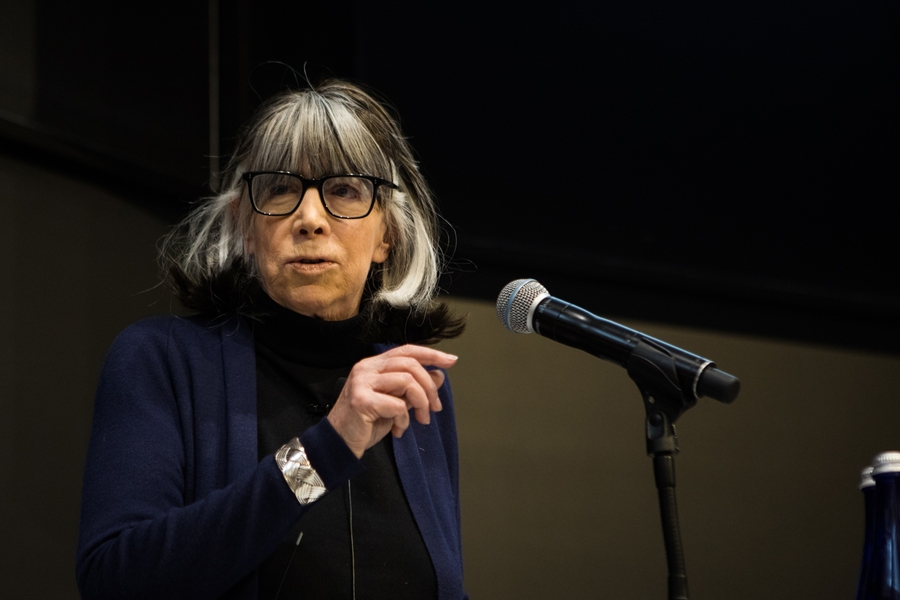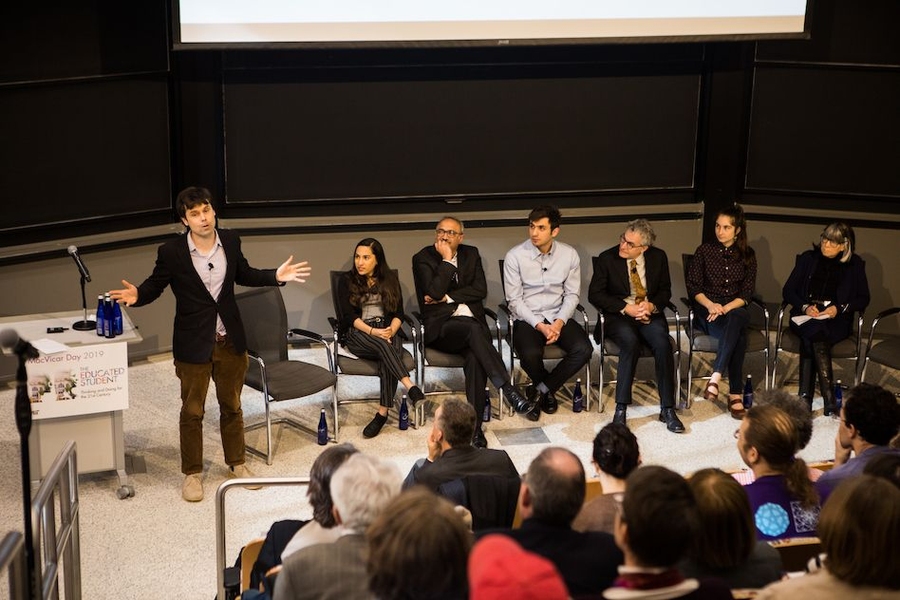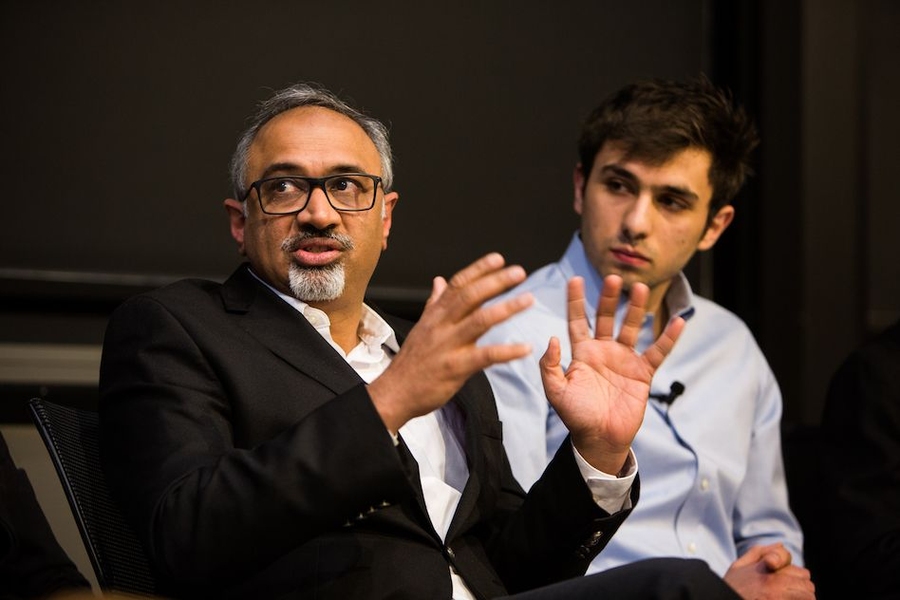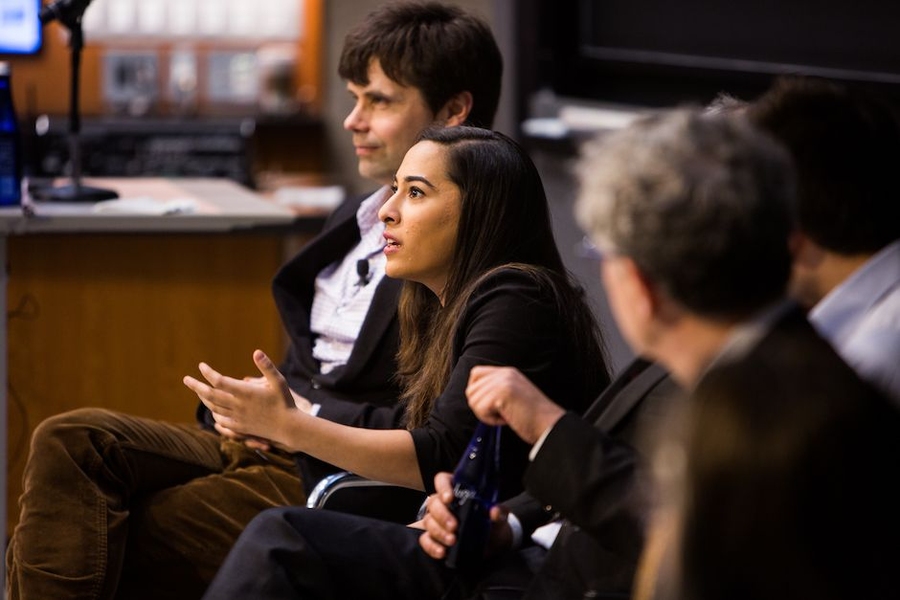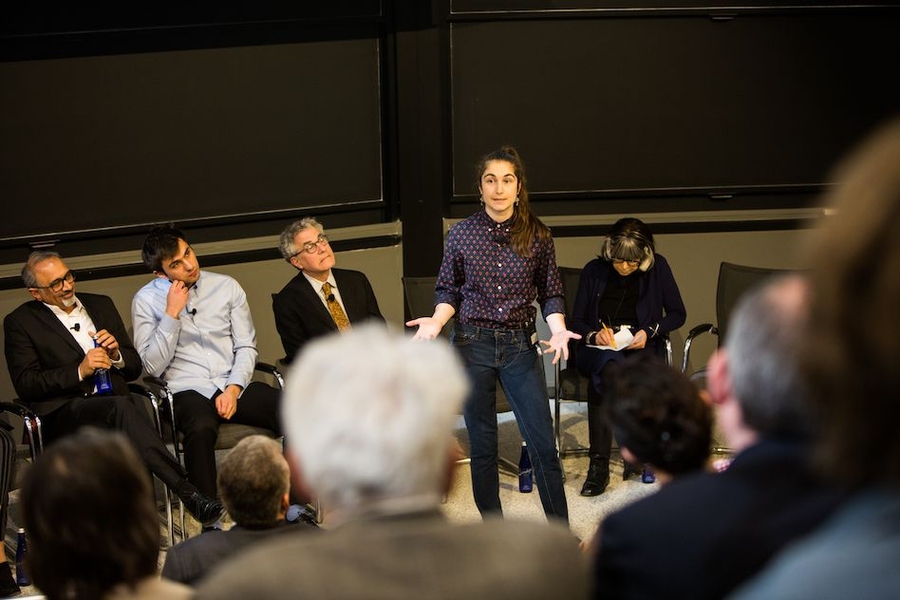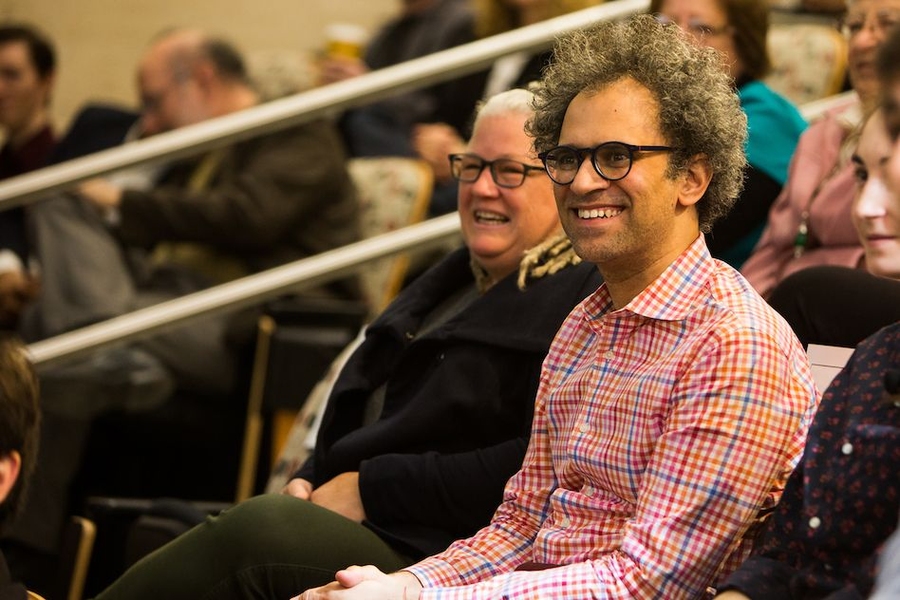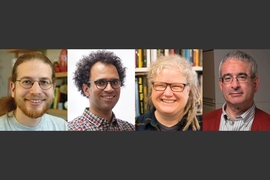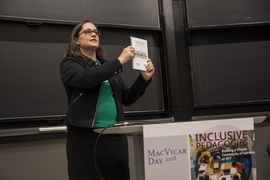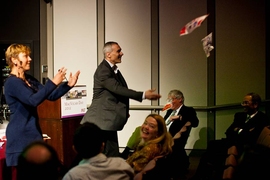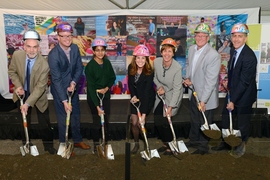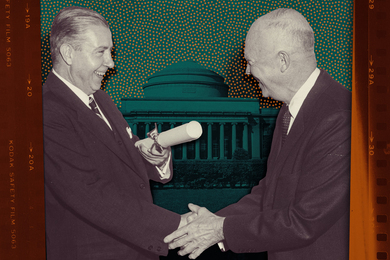What skills, ideas, and experiences should students expect to leave college with?
The MIT community explored this question during MacVicar Day on Friday, Mar. 8. The annual celebration of learning is named after the late Margaret MacVicar, the first dean for undergraduate education and the founder of the Undergraduate Research Opportunities Program (UROP).
Vice Chancellor Ian Waitz hosted the afternoon’s festivities and began by introducing the 2019 MacVicar Faculty Fellows: Ford Professor of Economics Joshua Angrist, computer science professor Erik Demaine, anthropology professor Graham Jones, and comparative media studies professor T.L. Taylor. Each was honored for their contributions to undergraduate education and selected through nominations from their colleagues and students.
The annual symposium followed. This year, four faculty members and three students were asked to present three-minute lightning talks on what is important to today’s learners. While the topics varied, enthusiasm, conviction, and a tangible sense of excitement pervaded the talks and several key ideas surfaced.
Time has compressed
We are able to solve problems at an accelerating rate, said Divya Goel, a senior majoring in Course 6-14 (Computer Science, Economics, and Data Science). In the past, technologists would create something, and then humanists would be tasked with responding to any consequences. Goel believes that this model is no longer sufficient; technologists and humanists must work together from the start. As an example, she cited a seemingly promising program that was created to predict relapses into criminal behavior. The program, however, is fundamentally flawed, overpredicting and underpredicting recidivism rates based on race. “We’re training machines based off of human choices, decisions that we’ve made in the past, and humans are flawed,” Goel explained. An interdisciplinary approach that accounted for systemic biases could have led to a more accurate result.
Fadi Atieh, a junior who studies mathematics, agreed that higher education must react to the rapid rate of change in the 21st century in order to solve these types of complex problems. He suggested a problem-solving class for all students at MIT. While some subjects like this already exist, he noted that they are advanced classes that require a very high level of specialty and skill. Both Goel and Atieh think there is much to be gained from taking the time to look at a given problem from multiple points of view to gain a nuanced understanding of how it might be solved.
Learning as self-preservation
Caspar Hare, professor of philosophy, outlined the two conflicting narratives of work throughout history: work as obligatory and unpleasant, and work as a means to find salvation and meaning in life. While the latter was the dominant strand in the 20th century, the age of work is in decline in the 21st century. How can students prepare themselves for a world without work? “The skill that we really need to imbue in students [for] this new post-work age that they’re going to find themselves in,” Hare said, is the ability to identify what they want and why.
Sanjay Sarma, the Vice President for Open Learning and the Fred Fort Flowers and Daniel Fort Flowers Professor of Mechanical Engineering said he believes “that learning and really understanding what it means to learn is going to be a central skill for us, but also a matter of self-preservation." He explained how humans are helpless when they are born because they have evolved to learn from their environments. In this way, we must become “learning machines,” he said, constantly adapting to the changing world while continuing to follow our natural instincts.
The humanities ... and our shared humanity
Katie O’Nell, a brain and cognitive studies major and self-described “wee nerd” who writes iambic pentameter into lab reports for fun, credited her humanities subjects for doing the most to shape her as a scientist. She recounted how a discussion of feminist epistemology in her literature and philosophy course helped her realize that neuroscience studies were inherently flawed when they only used male mice, which are protected against many genetic disorders by fetal testosterone. “When I tell you that I don’t understand where many of my assumptions about the world come from, this is a good thing,” she concluded. “It means that my time at MIT, and particularly my humanities education here, have forced me to examine the lenses through which I view the world a lot more closely.”
Susan Silbey, the Leon and Anne Goldberg Professor of Humanities, Sociology, and Anthropology and professor of behavioral and policy sciences at the Sloan School of Management, also provided a rousing defense of the humanities. She lamented the trend in higher education to move away from the humanities and emphasized what a contradiction it is for other schools to close humanities departments while championing interdisciplinary studies. “Education is not professional training for a job,” she said. Education should focus on truth, critical thinking, and questioning assumptions, especially as it becomes increasingly unlikely that students will be doing exactly what they learned in college in their careers.
Michael Sipser, the Donner Professor of Mathematics and dean of the School of Science, focused on the importance of human connection in his teaching. His role as a teacher, he said, “goes far beyond just the conveying of information.” For him, it is about nurturing souls and helping students grow. He sees himself as a guide on a journey, and tries to teach students the way he would like to be taught. Human interaction, he believes, is what allows students to thrive.
Hope for the future
“Education is good unto itself. It is better to be educated than not to be,” Silbey said. “Education is better because it makes each moment of living different ... education creates new instincts, habits of looking for new meanings, [and] of questioning old ones.” To her, this understanding of education is nothing new. It is fundamental in explaining who we are now, who we have been, and who we will be.
When asked what made them hopeful for the future of higher education, the student panelists reflected on growth in various forms. Goel has noticed a shift among her peers, whose interests have broadened from their first year to their senior year to include aspirations in law, politics, and economics. O’Nell reflected on how, as a first-year advisor, she has been able to witness “academic humility” and the first time students encounter a problem they cannot solve right away. And Atieh, who grew up in Syria in an education system that was based on “memorization, but not a lot of understanding,” felt optimistic when he came to MIT and for the first time recognized, through the passion of his professors, what learning could be.
The faculty commented on how their students seem more engaged, more thoughtful, more sensible, and more caring every year. “The students have a joy of learning, and it’s just a pleasure to see,” Sipser said.
